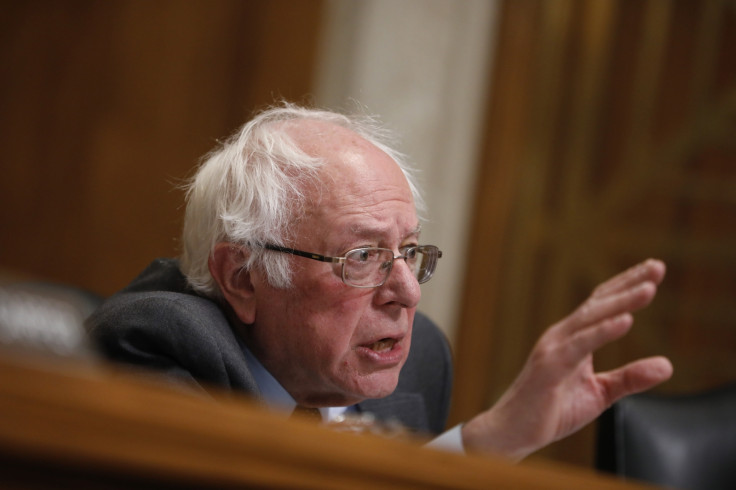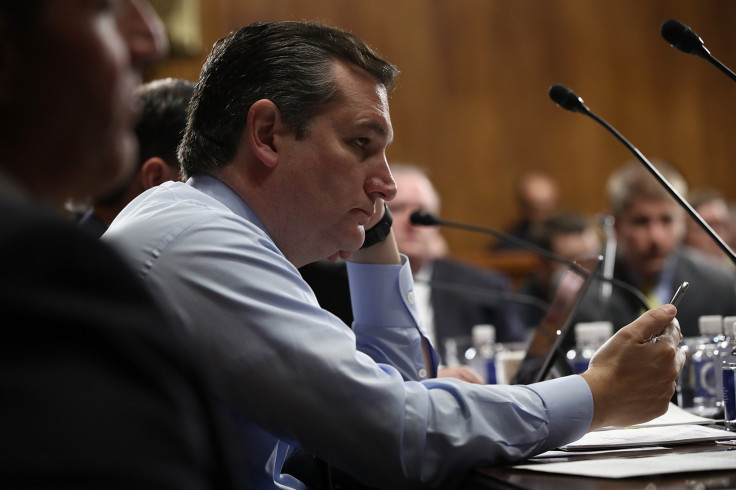Sanders and Cruz debate the future of US healthcare as Obamacare repeal looms
Cruz called for more market freedom and Sanders decried America's lack of a universal system.

In a town hall style debate on Tuesday night, Senators Bernie Sanders and Ted Cruz, both runner-up presidential nominees, set out their lines for the future of healthcare in America. Though the debate revolved around the Affordable Care Act (ACA), known also as Obamacare, the real discussion only touched on the fundamental question that underpins any question: Is healthcare a right?
No one on stage seemed to want to defend Obamacare. Cruz attacked broken promises from former president Barack Obama on how much people would pay and how much choice they would get; Sanders hit out from a different angle, arguing Obamacare was not perfect but that the replacement America needed was a single payer system he referred to as "medicare for all".
Both seemed to find common ground against the pharmaceutical industry, a topic President Donald Trump has hinted that he would be acting upon, but Cruz tended to bring that argument around to slamming the US Food and Drug Administration, saying that regulation held up new drugs from becoming available.
When it came to the promised repeal of Obamacare by the Republican party, Sanders drove the point that millions had received insurance coverage under the law while Cruz failed to say he would not support a replacement without provisions for those with pre-existing conditions, instead saying he wanted to further open the insurance market to a national level, not just limiting people to buying plans within their state.
Sanders continually made the point that the US is the only industrialised nation without a universal healthcare system, pointing to Canada in the north and systems around Europe. Cruz fired back by citing examples of people being turned away from hospitals in the UK and long wait times for procedures - this, he said, was a form of government "rationing".
"This country has more rationing than any other industrialised country on earth," Sanders retorted, "but our rationing is by income."

The owner of a chain of hair salons in the audience said that Obamacare's provision saying that businesses employing 50 people or more have to provide them with healthcare was stopping her from expanding her company and employing more people. "Let me give you an answer you will not be happy with," the 75-year-old Sanders said, before telling her that she should be providing her employees with health insurance.
Cruz came back, saying that Democrats treated small business people as if they were the "bad actor" but when the business owner told Sanders that she herself could not afford insurance, he went back to his calls for a universal system.
At one point the real axis of this national debate came up. Sanders asked Cruz: "Is every American entitled, and I underline that word, to healthcare as a right?"
"Let's talk about what rights are. Rights mean you have a right for government not to mess with you, for government not to do things with you ... what is a right is access to healthcare, what is a right is choosing your own doctor," Cruz said.
Sanders: "Access to what?" ... "Access doesn't mean a damn thing" #CNNDebateNight https://t.co/bIRFGMYqCK https://t.co/qVm7ZB5hVh
— CNN Politics (@CNNPolitics) February 8, 2017
Sanders took to the audience, singling out LaRonda, the small business owner: "Look LaRonda, you have access right now, go out and get a really great health insurance programme. Oh, you can't do it because you can't afford it. That's what he's saying.
"You want to buy one of Donald Trump's mansions, you have access to do that as well. Oh you can't afford $5m for a house? Sorry. Access doesn't mean a damn thing."
At the end of the night, Sanders said Congress cares more about industry and their own campaign contributions than representing Americans. Under Senator Cruz, Sanders said, "you are on your own."
It’s time for Republicans and Democrats to deliver on the promises made to the American people. https://t.co/IeWvSy6rQG #CNNDebateNight pic.twitter.com/cFHdC2JwcO
— Ted Cruz (@tedcruz) February 8, 2017
Cruz went back to his party platform for the ending, asking audience members to raise their hands if their health insurance costs had gone up, saying Obamacare "isn't working because it was built on an edifice of lies". Under the Republicans, people would be able to buy insurance across state lines, it would "put you in charge of your healthcare, not government".
With Trump having signed an Executive Order telling departments to block Obamacare, the question of its replacement is more than likely to rise to the forefront again soon. When that might be is another question, with Trump suggesting in an interview aired on Sunday that ACA might not be repealed until 2018.
This debate ended. Nationally, it continues.
© Copyright IBTimes 2025. All rights reserved.






















